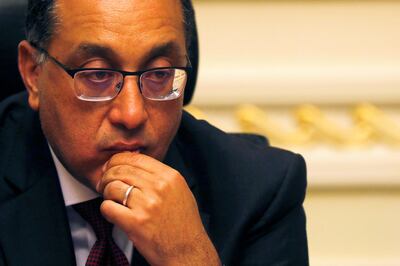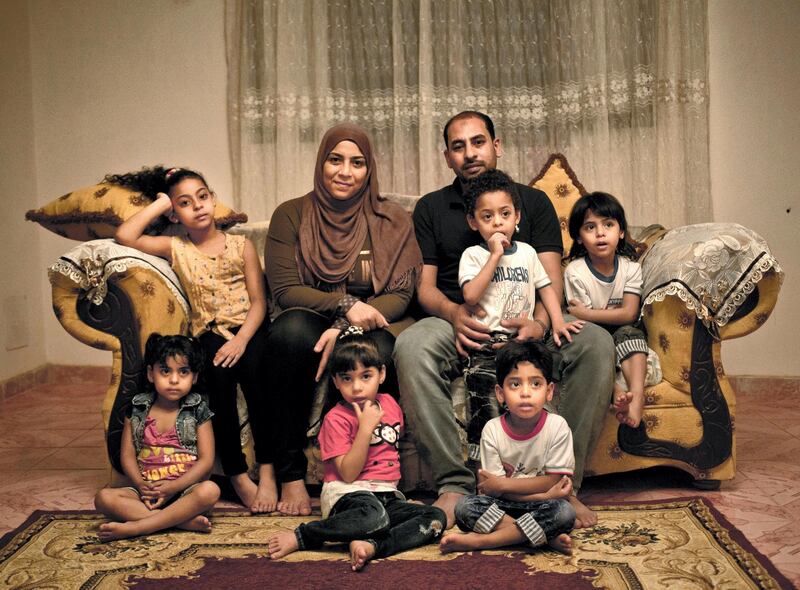Egypt is considering offering incentives to mothers who restrict their families to two children, part of an ambitious national programme designed to reduce the Arab nation’s rapid population growth.
Egypt is the most populous Arab nation with 104 million people. Its population is growing by one million people every 10 months, a fact that President Abdel Fatteh El Sisi said is wiping out the benefits of his government’s efforts to create jobs and provide better education and health services.
In the eight years he has been in office, he said, Egypt’s population has increased by 10 million.
Offering incentives to mothers with two children underlines the caution with which authorities must tread when dealing with family planning in a conservative, majority Muslim nation where penalising big families can trigger a popular backlash on religious grounds.
The government’s programme to check the population growth takes on added importance given that Egypt is struggling to cope with a deepening economic crisis it blames on the fallout from the Russia-Ukraine war.
They may also be seen as an admission that decades of media campaigns to persuade couples to embrace birth control had a limited effect and that a more comprehensive approach is required.
Many Egyptians, especially in rural communities, are keen on big families for economic reasons, looking to their children to work from an early age — as young as 8 or 9 in some cases — to contribute to the family’s income.
Just as importantly, they view children as a divine gift that should not be interfered with through birth control. Even religious institutions that wield vast influence, like Cairo’s Al Azhar Mosque — the world’s primary seat of Sunni Muslim learning — tread carefully when addressing the issue, fearing a public backlash if they openly advocate its adoption.
The announcement on offering incentives to mothers with two children was made following a meeting earlier this week by the recently-created National Project for the Protection of the Egyptian Family that was chaired by Prime Minister Mostafa Madbouly.

The three-year project is Egypt’s most comprehensive and ambitious attempt in decades to deal with population growth. Besides Mr Madbouly, it will be run by the ministries of health, planning, information and social solidarity in addition to several relevant state institutions.
An official statement said 2022 statistics showed that every Egyptian family had an average of 2.8 children, considerably higher than the long-term target average of 1.6.
The proposed incentives, it said, will be applicable to women who are 45 or older with two children. Women whose children are born at “reasonable” intervals would also be eligible for incentives.
The statement did not give further details, but MP Mirvat Abdel Azeem on the health committee said monetary incentives would be the most effective.
“I already proposed in the house, a programme under which women with two children are given financial incentives twice a year for 10 years. Families that exceed two children will be stripped of the incentives,” she told The National.
“Most citizens need to be made aware of the importance of controlling population growth and the danger it poses to the future of our children.”
Hazem El Guindy, a member of parliament’s upper house, told The National that the incentives should include social security coverage and a reduction in the cost of health care and education.
“It is an issue that should be given maximum priority,” he said.

A blueprint of the family protection project seen by The National gives an annual population growth of 2.4 as the target by 2030.
The blueprint includes plans to help women aged 18-35 to start 1 million micro projects and the training of 2 million women aged 18-45 to run projects, and have their illiteracy eradicated.
It also aims to offer birth control services and devices free of charge.
The blueprint also includes plans to teach family planning at high schools and universities.
Pregnant or breastfeeding women from the poorest segment of the population are to be offered 100 pounds' ($3.3) worth of subsidised food items obtained by the state’s food cards, which cover more than 70 million people, according to the blueprint.







